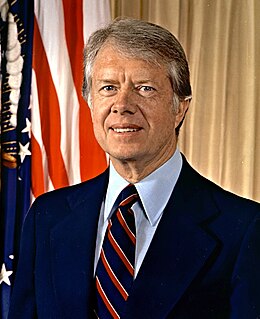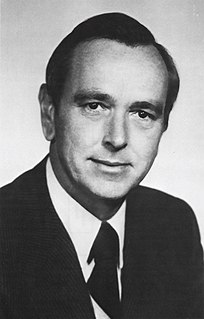
George Dekle Busbee Sr., was an American politician who served as the 77th Governor of the U.S. state of Georgia from 1975 to 1983, and a senior partner at King & Spalding thereafter.

Howard Hollis "Bo" Callaway Sr. was an American politician and businessman from the state of Georgia.

The 1978 United States Senate elections in the middle of Democratic President Jimmy Carter's term. Thirteen seats changed hands between parties. The Democrats at first lost a net of two seats to the Republicans, and then one more in a special election. Democrats nevertheless retained a 58-41 majority.

United States gubernatorial elections were held on November 3, 1998 in 36 states and two territories. Going into the election 24 of the seats were held by Republicans, 11 by Democrats, and one by an Independent. The elections changed the national balance of power by the loss of one Republican and the gain of one Independent, although it shifted in nine states. Democrats gained open seats in California and Iowa and defeated incumbents Fob James of Alabama and David Beasley of South Carolina, while Republicans won open seats in Colorado, Florida, Nebraska, and Nevada and the Reform Party won an open Republican governorship in Minnesota. By the end of the election, 23 seats were held by Republicans, 11 by Democrats, one by the Reform Party, and one by an Independent.
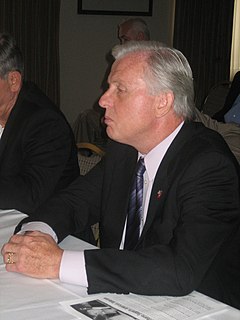
Jack E. Wagner is a Democratic politician from Pennsylvania. He is a former State Auditor General, and has also served in the State Senate and Pittsburgh City Council.
David Lloyd Thomas is a Republican former member of the South Carolina Senate. He represented District 8 from 1984 to 2012, which included part of Greenville.

The 1970 Georgia gubernatorial election was held on November 3, 1970. It was marked by the election as Governor of Georgia of the relatively little-known former state Senator Jimmy Carter after a hard battle in the Democratic primary. This election is notable because Carter, often regarded as one of the New South Governors, later ran for President in 1976 on his gubernatorial record and won.
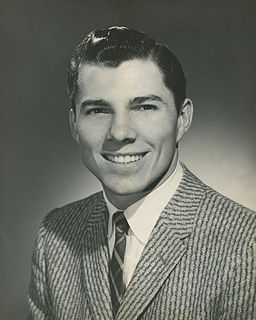
Ronald John Thompson, known as Ronnie Thompson or 'Machine Gun Ronnie' Thompson, is a former Georgia Republican politician who was the first member of his party to have been elected mayor of Macon, the seat of Bibb County in central Georgia. Thompson served two controversial terms from 1967 to 1975. He is also a former gospel and country music singer known for his highly conservative views on issues.
Kent Williams was a member of the Tennessee House of Representatives, first elected in 2006 to the Tennessee House of Representative as a Republican from the House District 4 (then entirely then Carter County in 2006 and subsequently reelected to the House in 2008.

The 1962 Alabama gubernatorial election took place on November 6, 1962. Incumbent Democrat John Malcolm Patterson was term limited and could not seek a second consecutive term.
Electoral history of Lester Maddox, 75th Governor of Georgia (1967–1971), seventh Lieutenant Governor of Georgia (1971–1975) and 1976 American Independent Party presidential nominee

The 1974 Massachusetts gubernatorial election was held on November 5, 1974. Michael Dukakis was elected to a four-year term, from January 4, 1975 until January 4, 1979. He defeated incumbent Governor of Massachusetts Francis W. Sargent in the general election.

The 1970 Massachusetts gubernatorial election was held on November 3, 1970. Acting Governor Francis W. Sargent was elected to a four-year term. He defeated incumbent Boston Mayor Kevin H. White in the general election.

The 1964 Massachusetts gubernatorial election was held on November 3, 1964. Former Governor John A. Volpe was elected to a two-year term. He defeated former Lieutenant Governor Francis X. Bellotti in the general election.

A Massachusetts general election was held on November 4, 1986 in the Commonwealth of Massachusetts.

The 1978 United States Senate election in Mississippi was held on November 5, 1978. Incumbent Democratic U.S. Senator James Eastland decided to retire. Republican Thad Cochran won the open seat.

The North Carolina gubernatorial election of 1980 was held on November 4, 1980. Despite North Carolina going to Ronald Reagan in the presidential race and the U.S. Senate race being won by a Republican, popular Democratic Governor Jim Hunt won a second term in office in a landslide over I. Beverly Lake. Hunt thus became the first governor of the state elected to a consecutive four-year term, following an amendment to the North Carolina Constitution allowing such a run.
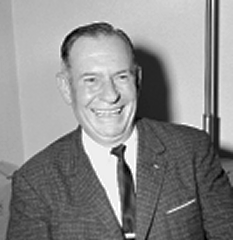
The 1954 Georgia gubernatorial election was held on November 2, 1954. Running unopposed in the general election, Democratic Lt. Gov Marvin Griffin was elected with 99.98% of the vote.

The 1980 Indiana gubernatorial election was held on November 4, 1980 in all 92 counties in the state of Indiana. Otis R. Bowen, the state's incumbent governor was ineligible for a third consecutive term due to term limits set forth in the Indiana Constitution. Robert D. Orr, the state's incumbent Republican lieutenant governor, was elected to his first term, defeating John A. Hillenbrand II, and a minor party challenger.

